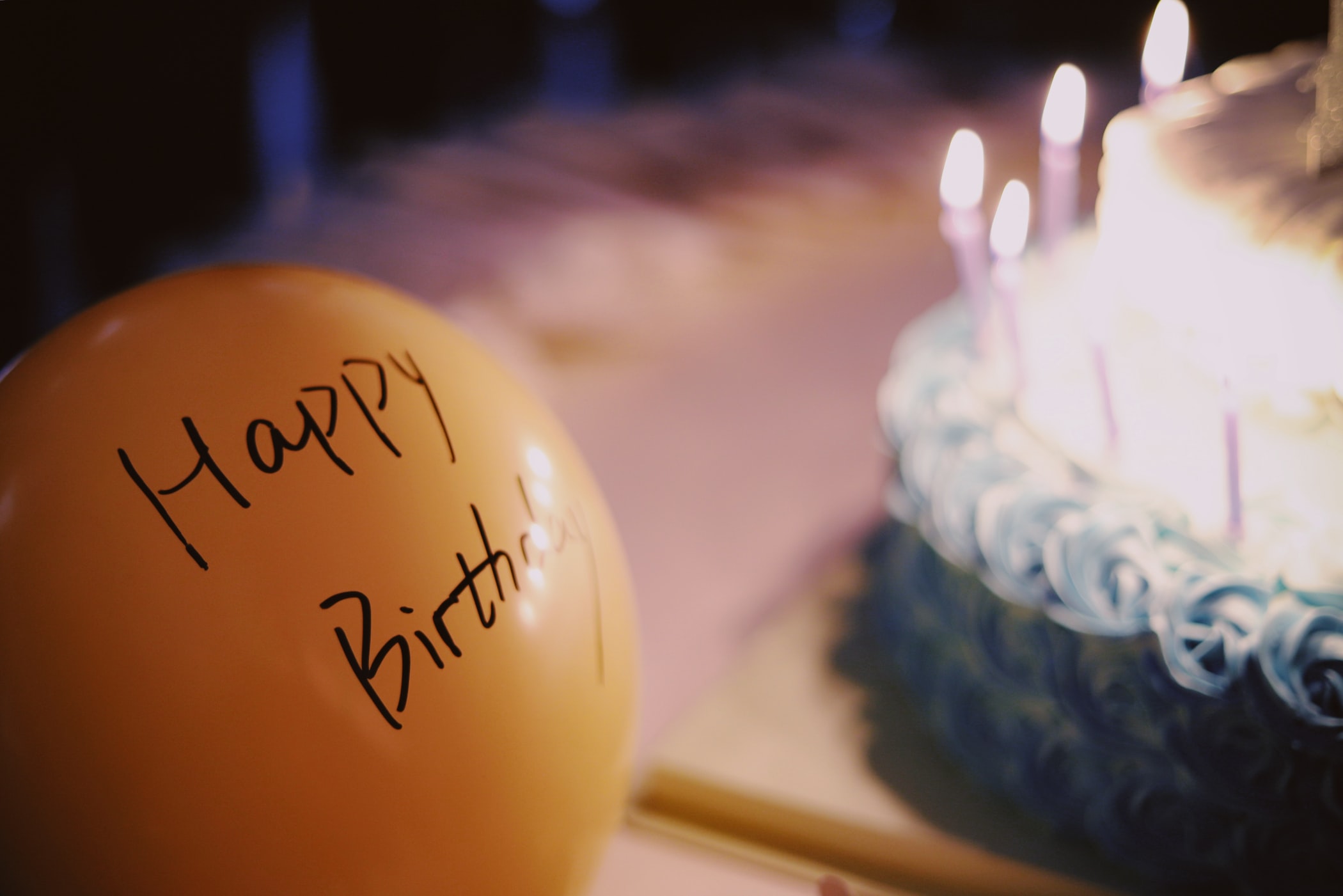 Do you want to learn how to wish a happy birthday in Italian to make your Italian friend feel extra special? Italian people love to celebrate anniversaries and special occasions, so you may want to learn what to say in these social situations. Let’s take a look at the best ways to wish someone a happy birthday, whether you’re doing it in person or by sending a text message or card.
Do you want to learn how to wish a happy birthday in Italian to make your Italian friend feel extra special? Italian people love to celebrate anniversaries and special occasions, so you may want to learn what to say in these social situations. Let’s take a look at the best ways to wish someone a happy birthday, whether you’re doing it in person or by sending a text message or card.
How do you wish someone a happy birthday in Italian?
Birthdays in different cultures can be celebrated in different ways. In Italy, just like in many other countries, this occasion requires cakes, presents and parties. Some people choose to stay at home and cook, and even bake their own cake, while others would rather go out for dinner.
No matter how the birthday is celebrated, Italians mainly express their best wishes by using one of these two phrases: buon compleanno or tanti auguri.
Buon compleanno (listen to the pronunciation) literally means “good birthday” and Italians use it the same way English speakers use “Happy birthday”. Here are all the ways you can wish someone happy birthday, which are basically variations of these two:
- Buon compleanno
Happy birthday
- Tanti auguri di buon compleanno
Many wishes for your birthday
- Auguri
Good wishes
- Tanti auguri
Many wishes
- Tanti cari auguri, amico mio (or in case of a female: “amica mia”)
Many dear wishes, my friend
What is the meaning of tanti auguri?
Tanti auguri (listen to pronunciation) is another common sentence to wish someone the best during their birthday. In fact, the popular song “happy birthday to you” is translated into Italian as “tanti auguri a te”. Tanti auguri, however, does not literally mean “happy birthday.” In fact, the Italian word for “birthday” (compleanno) does not even appear in this phrase.
The word “auguri” literally means “well wishes” and is often used in special occasions, while “tanti” means “many”. You can also shorten this sentence and just say a simple auguri. Unlike buon compleanno, which is used only for birthdays, tanti auguri is more versatile.
In fact, tanti auguri is a generic sentence which can be used to express your wishes in other important occasions such as Christmas, Easter, New Year, Mother’s Day and so on. You can just say tanti auguri, or use full expressions such as:
- Tanti auguri di buon Natale
Merry Christmas
- Tanti auguri di buon anno nuovo
Happy New Year
- Tanti auguri per la festa della mamma
Happy Mother’s Day
- Tanti auguri di buona Pasqua
Happy Easter
The general formula for these expressions is best wishes + for + the name of the holiday. However, tanti auguri is also used to wish someone success in life. You can say tanti auguri to a friend who is starting a new job, is going to have a baby, getting married or celebrating his/her anniversary.
And if you want to sing Happy Birthday in Italian with the same tune as in English, it goes like this:
Tanti auguri a te,
Tanti auguri a te,
Tanti auguri a <insert name>
Tanti auguri a te!
We already know that tanti auguri means happy birthday, while a te means to you. You can listen to the track here and practice singing it for your friend or loved one!
Other ways to wish a happy birthday in Italian
If you want to be original you can use the expression cento di questi giorni, which literally means “one hundred of these days” and is used to wish someone 100 years of birthdays, or a long life. You can also say felice compleanno, which literally means happy birthday. Felice in fact means “happy”. This expression, however, is not so common anymore.
How to ask somebody about their age
If you’re invited to a birthday party and you want to ask the festeggiato/a (the birthday boy, or birthday girl) about his/her age you can say:
- Quanti anni compi?
How old are you today?
In general, if you want to ask about someone’s age when it’s not their birthdays you should instead say:
- Quanti anni hai?
How old are you?
Quanti means “how many”, anni means “years” and hai is the second person singular of the verb to have. So, the literal translation of this sentence would be: “how many years do you have?” You can answer these questions by saying:
- Quanti anni compi?
How old are you today? - Compio 25 anni
I’m turning 25 - Quanti anni hai?
How old are you? - Ho 25 anni
I’m 25 years old
Note that to tell your age in Italian you need to use the verb avere – to have and not the verb to be, like in English. Here you can review Italian numbers to learn how to say your age and the date of your birthday.
Questions and answers about birthday celebrations
When you’ve known someone for a while, you may want to ask them when their birthday is. You can say:
- Quando è il tuo compleanno?
When is your birthday?
Or you can also ask “quando compi gli anni?”, which also means “when is your birthday”. Quando is when, anni is years, while the verb compiere means to turn, to reach a certain age.
Another common way to ask indirectly about someone’s age is the following:
- Di che anno sei?
In which year were you born? - Sono del settantadue
I was born in 1972
Italians often joke about the fact that it’s impolite to ask the age, especially to women, who might be reluctant about giving out this information. When asking women – especially mature women – it’s better to ask about their birthday date, rather than the year they were born. You should therefore use the first example, instead of the second one. This way, if someone is uncomfortable with telling you their age, they can simply say the day they were born, without the year:
- Quando è il tuo compleanno?
When is your birthday? - Il 15 settembre
It’s on September 15
When replying to someone who is asking you about your birthday date you simply put the day first and then the month. Since telling one’s age can be a sensitive topic, Italian people like to be polite by using this reply when they discover how old someone is:
- Ho 45 anni
I’m 45 years old - Complimenti, non li dimostra!
Congratulations, you don’t show them!
This reply can be a bit odd for English speakers. You basically want to tell someone that they look younger than their age: complimenti means congratulations, while the verb dimostrare means “to show”, “to display”. You can also say:
- Complimenti, li porta bene!
Congratulations, you carry them well!
Which is another way to politely say that someone looks younger.
If you want to ask your friend whose birthday is coming up soon what present they would like to receive, you can say:
- Che regalo vuoi?
What present do you want?
Or even:
- Cosa vuoi per il tuo compleanno?
What do you want for your birthday?
Italian birthday traditions and useful vocabulary
Italians keep all the traditional major ways to celebrate a birthday (cake, candles, gifts), but there are some differences from other cultures such as the US. Usually when Italians celebrate their own birthday, they invite friends and family out and pay the dinner, or drinks, for everyone. Here you can find some useful vocabulary related to birthdays:
- Torta – cake
- Candeline – candles
- Regalo – gift
Even if sometimes the price of the dinner is shared, with everyone paying their own food – especially for young generations – it is still a common tradition to pay for one’s own birthday dinner, so be prepared to come with a gift when your friend invites you out. The wrapping of the gift is also important. Wrap your present beautifully and choose a colorful ribbon.
Note that wishing happy birthday to a friend one or few days in advance is considered rude by Italian people. There is no actual reason for this, it is simply considered something that brings bad luck, so be sure to know the exact date of your Italian friends’ birthdays! If you forgot your friend’s birthday and want to wish them a belated happy birthday in Italian, you can say:
- Tanti auguri in ritardo
Happy belated birthday
It is also common to accompany your gift and wishes with a birthday card, where you need to write down a few words to the birthday boy or girl. Another Italian tradition is to open all the presents in front of everyone at the party, so you may want to buy something not too personal or that your friend won’t be ashamed to show in public.
The birthday boy/girl is also expected to buy the cake, or bake it. It is a common practice to sing the Italian version of Happy Birthday while the “festeggiato” is blowing out the candles on his/her birthday cake. He or she need to blow the candles and make a wish, just like in many other countries. It is believed that you cannot tell your wish to anyone, or it won’t come true!
- Esprimi un desiderio
Make a wish
Finally, Italian people love to celebrate not only their birthdays, but even their “onomastico”, which is their Saint’s day, as the majority of people have a Christian name. Especially in South Italy, this day is regarded as a big event, as important as a birthday, and during the occasion people also express their wishes with “tanti auguri”.
Conclusions
Birthdays include celebrations, food, friends and fun; now that you know all the essential vocabulary for this social occasion you’re ready to have an awesome birthday party! Tanti auguri!
Learn Italian in context with ClozemasterClozemaster has been designed to help you learn the language in context by filling in the gaps in authentic sentences. With features such as Grammar Challenges, Cloze-Listening, and Cloze-Reading, the app will let you emphasize all the competencies necessary to become fluent in Italian. Take your Italian to the next level. Click here to start practicing with real Italian sentences! |



Thank you Viola! I was looking for ways to greet my Italian friends for birthdays 🙂 Grazie!